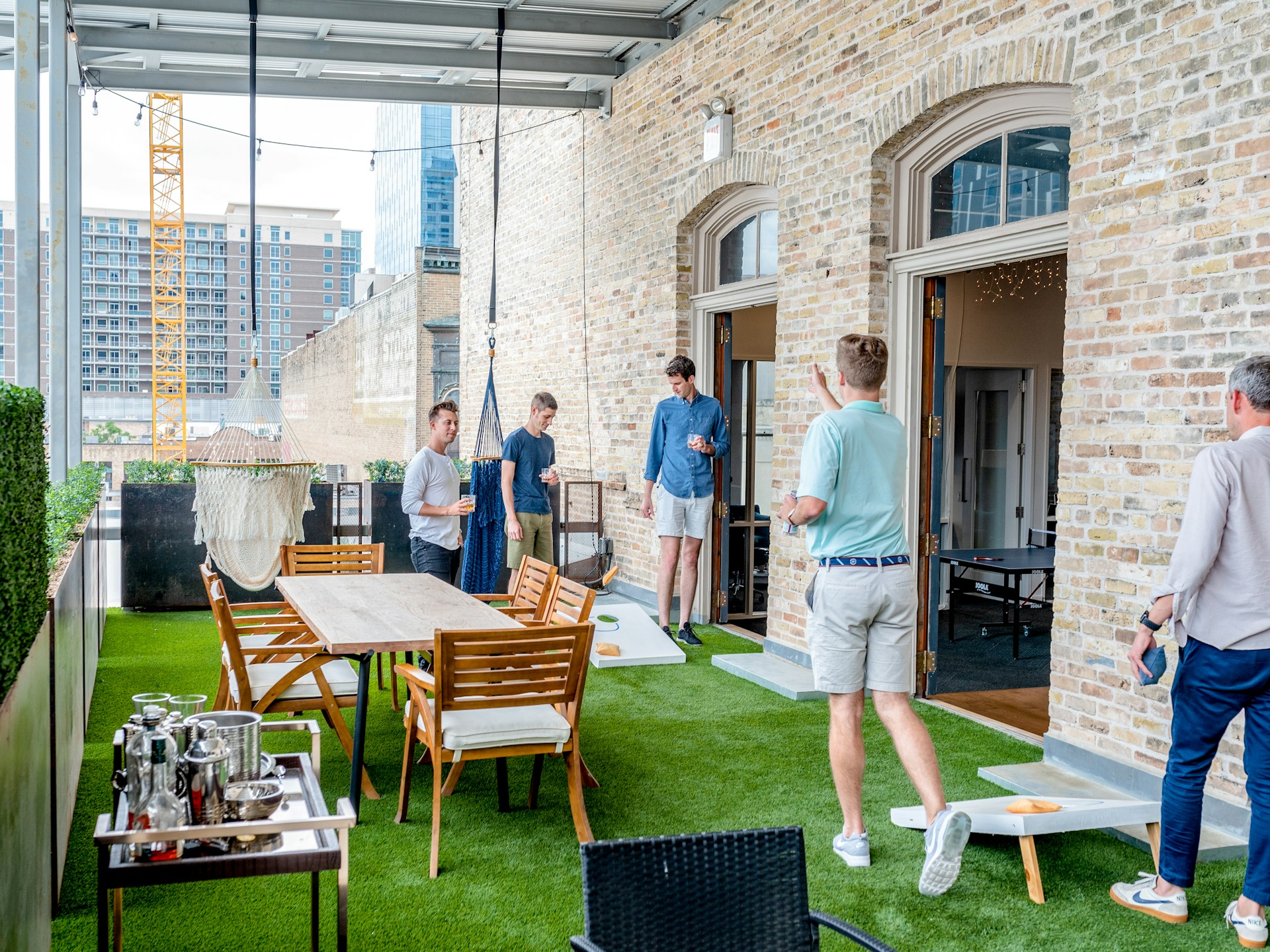The Korea Neurodiversity Association (hereinafter referred to as KNDA) covers the employment cases and work status of neurodiverse people, such as people with physical and mental disabilities and people with borderline intelligence. Through their voices, we want to learn more about workers with disabilities and help companies raise awareness. In addition, I hope that this interview can play a role in lowering the boundaries of neurodiversity/disability/non-disability in our society.
For our first interview, we had Ms. Kim, Deputy Director of the HR Team of Company P. Let’s listen to an interview with Ms. Kim, who has been working with a cheerful face throughout.

Editor K: Hello. First, please introduce yourself.
Ms. Kim: Yes, hello. I’m OO Kim from the HR team at POOOOO. I am currently 38 years old and have been with the company for two years.
Editor B: Can you tell us a little bit about your disability and what your disability is?
Ms. Kim: Shortly after I was born, I had a physical defect and spent time in the hospital undergoing several surgeries until I was 10 years old. In the process, I was diagnosed with a combined facial/visual disorder. After that, I went about my daily life without any problems. Then, in my early 30’s, my vision was intact, and I had to have surgery for retinal detachment and glaucoma in one eye. Currently, he has low vision due to a defect in his left vision, hearing problems that make it difficult to understand small sounds, and facial recognition disorders.
Editor K: Could you tell us a little bit about how you came to join your current company and how you got a job or changed jobs?
Ms. Kim: I received a job application as a trainee at my previous employer. I was actively preparing for the recruitment/training project for people with disabilities at my current job, so I got an opportunity for an interview, and I appealed to them with their low eyesight, but they were not uncomfortable at work, and they had a positive impression and office experience. Since it is a foreign company, I was afraid of English at first, but I thought that there was a separate business team for people with disabilities, so I could work with good consideration. I once worked for a large company, and it was difficult because the perception of disability was lower than expected. So, during the interview, I asked them about their consideration for employees with disabilities and asked if they were just given repetitive tasks like filling a quota. As a result, I joined the company as the first employee with a disability.
Editor K: What is your current job and how do you feel about it?
Ms. Kim: In my first year at the company, I worked on formatting various resumes into our own forms. It’s a simple job, but I thought that the resume I created could be delivered to the client and be a good opportunity for the candidate, so I worked with responsibility and meticulousness. As a result, I was able to gain recognition from my colleagues and take on more diverse responsibilities over time. I have now been promoted to deputy manager and am working as an admin in the HR team. I am in charge of the overall management of the office and the convenience of the staff. I am satisfied that I am able to communicate with employees more actively while working, and it is very helpful in understanding the overall process of our company.
Editor B: So what are your strengths and weaknesses in your work?
Ms. Kim: First of all, the advantage of my job is that as an HR team, I can communicate with all employees and know about the work of the company as a whole. I also like to be organized, so I enjoy helping to keep my office clean and convenient. And it’s rewarding to hear compliments about him. However, due to visual field defects and slight hearing problems, we often miss the finer details when dealing with people. Sometimes you don’t recognize someone next to you, and because of facial recognition disorder, the faces and names of the employees often don’t match. I think it’s more because I mainly use messengers and have less direct communication. That’s why I’m trying to get acquainted with the first meal proposal and face.
Editor K: Do you receive any support from companies?
Ms. Kim: Due to the nature of the HR team’s work, we have to go to work in person, so we don’t work from home or have flexible work arrangements. However, when I can’t recognize my surroundings, when I can’t remember faces, and when I sometimes have assistance with walking because of my vision, I work with a lot of consideration in terms of communication and work. I’m grateful if the staff understands and helps me at such times, but I also feel a little upset…. I approach my work with the mindset that ‘if someone has to do even a small task, I will do the best I can’.
Editor K: What do you want from your current job to make your job go smoothly?
Ms. Kim: Right now, I’m using the zoom function of my smartphone, the scanning function to easily view written documents, and the easy-to-use dark mode, so I don’t feel like I need much support just yet. However, since I have a progressive disease, I think that more assistive devices will be added in the future. Another thing I would like to see is that there will be more opportunities for employees to talk to each other. Especially on Disability Day, there will be various events that can be held with employees with disabilities in the company, including myself.
Editor B: I’d like to ask you about your career concerns, future plans, and aspirations.
Ms. Kim: I am thinking about career development and setting goals in IT-related fields where there is little written work. As an expansion of HR work, I continue to study English while conducting education using IT. I think I need the courage and perseverance to do it in order to improve my own abilities rather than being a “disability.”
Editor K: Thank you for agreeing to the interview. Lastly, is there anything you would like to say to the readers of this article?
Ms. Kim: My life has changed drastically due to congenital/acquired disabilities, and it wasn’t long before I came to understand disability. After living in a close environment with people with disabilities for the past few years, there has certainly been an improvement in awareness compared to 10 years ago, and people with disabilities who are “invisible” are actively working. Of course, there will still be times when people with disabilities are not respected by pessimistic standards. Even if we are with the same disability, we can see that there is a lack of understanding between each other. That’s why I open up a lot about my disability and ask for help. I had to make the other person clearly aware of what I can and can’t do, so that I can work efficiently and have no discomfort in my interpersonal relationships. If you want to be understood, not because you have a disability, you need to know a lot about yourself and have a positive outlook on the world. As I have missed many opportunities due to pessimism due to my limitations, I have a desire to do my best to live happily by challenging what I can do, rather than regretting not being able to do it. I hope my story will be of some help to you, too!


![You are currently viewing [On-site interview] Instead of regretting what cannot be done, let’s do our best at what we can do](https://knda.ne.kr/wp-content/uploads/2024/10/image01.png)


